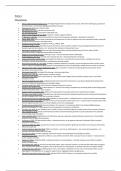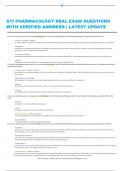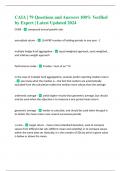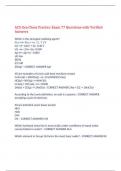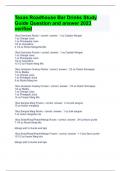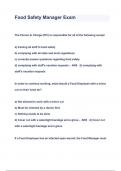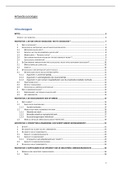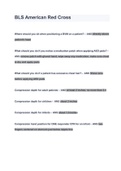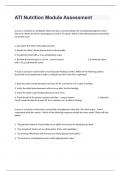Summary
Summary In search of the American Dream: the USA, c1917-96 All Themes Timeline PDF
- Course
- Institution
Unit 1F - In search of the American Dream: the USA, c1917-96 All Themes Timeline PDF provides a chronological synopsis of every key event for all 5 themes: 1) The Changing Political Environment (1917-80) 2) The Quest for Civil Rights (1917-80) 3) Society and Culture in Change (1917-80) 4) The ...
[Show more]
